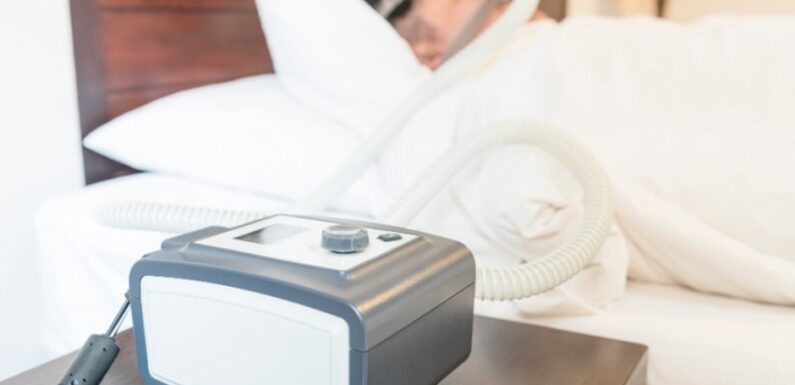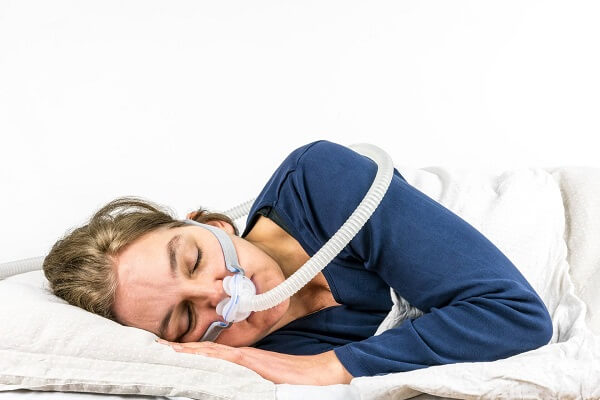
Understanding Sleep Apnea and Snoring in Singapore
Sleep apnea and snoring are prevalent sleep disorders affecting many Singaporeans, significantly impacting their sleep quality and overall health. These conditions can lead to daytime fatigue, reduced cognitive function, and, if left untreated, contribute to serious health issues such as hypertension, heart disease, and diabetes.
Sleep Apnea:
Sleep apnea is a disorder characterised by interruptions in breathing during sleep. It is often accompanied by loud snoring and frequent awakenings throughout the night. The two main types of sleep apnea are obstructive sleep apnea (OSA) and central sleep apnea (CSA).
Obstructive Sleep Apnea (OSA):
Obstructive sleep apnea is the more common form, occurring when the muscles in the throat relax excessively during sleep, causing the airway to collapse or become blocked. This obstruction leads to pauses in breathing, typically followed by gasping or choking as the body attempts to restore normal breathing.
Central Sleep Apnea (CSA):
Less common than OSA, CSA occurs when the brain fails to send the appropriate signals to the muscles that control breathing. This results in periods of halted breathing during sleep.
Snoring:
Snoring is a common issue that affects both the individual snorer and their sleep partner. It occurs when airflow through the mouth and nose is obstructed during sleep, causing vibrations of the soft palate and uvula, resulting in the characteristic sound.
While occasional snoring is normal, persistent and loud snoring can be indicative of underlying health issues, including sleep apnea.
Impact on Health and Well-being:
The impact of sleep apnea and snoring extends beyond disrupted sleep patterns. Chronic sleep deprivation due to these conditions can lead to:
Daytime Fatigue:
Individuals with sleep apnea often wake up feeling unrefreshed despite spending adequate time in bed. This persistent fatigue can impair concentration, productivity, and overall quality of life.
Cardiovascular Health:
Sleep apnea is associated with an increased risk of hypertension (high blood pressure), heart disease, and stroke. The repeated drops in blood oxygen levels and disruptions in sleep patterns can strain the cardiovascular system over time.
Metabolic Health:
Studies have linked sleep apnea with insulin resistance, glucose intolerance, and an increased risk of developing type 2 diabetes.

Effective Treatments Available in Singapore:
Singapore offers a range of effective treatments tailored to manage sleep apnea and snoring, catering to the diverse needs of its population.
Lifestyle Changes:
Making small but impactful changes to daily routines can significantly improve sleep quality and reduce symptoms associated with sleep disorders. In Singapore, where local cuisine is rich and diverse, emphasising nutritious options and regular exercise can aid in weight management, which is crucial as excess weight can contribute to worsening sleep apnea symptoms.
Continuous Positive Airway Pressure (CPAP) Therapy:
CPAP therapy is widely regarded as the gold standard treatment for obstructive sleep apnea. In Singapore, CPAP machines are readily available and prescribed by sleep specialists. These devices deliver a constant flow of air through a mask worn over the nose or nose and mouth, keeping the airway open during sleep. CPAP therapy effectively prevents interruptions in breathing, promotes restful sleep, and reduces daytime fatigue.
Oral Appliances:
For individuals who find CPAP machines cumbersome or prefer alternatives, oral appliances offer a comfortable and portable solution. These devices are custom-fitted by local specialists to reposition the jaw and tongue, thereby preventing airway obstruction and reducing snoring. Oral appliances are particularly beneficial for individuals with mild to moderate sleep apnea.
Surgical Options:
In severe cases of sleep apnea where other treatments have been ineffective or are not tolerated, surgical intervention may be considered. Singapore boasts advanced medical facilities that offer precise surgical procedures tailored to each patient’s specific anatomical issues contributing to sleep apnea.
Surgical options may include:
Uvulopalatopharyngoplasty (UPPP):
This surgery involves removing excess tissue from the throat to widen the airway.
Genioglossus Advancement:
This procedure involves repositioning the tongue muscle attachment to prevent it from collapsing backward during sleep.
Hyoid Suspension:
In this surgery, the hyoid bone, located in the neck, is repositioned to stabilise the airway and reduce obstruction.
Seeking Professional Help:
It is crucial for individuals experiencing symptoms of sleep apnea or chronic snoring to seek professional evaluation and guidance. A healthcare provider specialising in sleep disorders can conduct a thorough evaluation, which may include a sleep study (polysomnography), to accurately diagnose the type and severity of sleep apnea.
Take Control of Your Sleep Health Today:
Managing sleep apnea and snoring in Singapore is achievable with the right resources and treatments. By taking proactive steps and exploring tailored solutions that suit individual preferences and lifestyles, individuals can significantly improve their sleep quality and overall well-being.
Conclusion:
Sleep apnea and snoring are common sleep disorders that can have profound implications for health and quality of life. In Singapore, a variety of effective treatments are available, ranging from lifestyle adjustments to advanced medical interventions. By seeking professional guidance and taking proactive steps towards treatment, individuals can reclaim restful sleep and enhance their overall health and vitality.
For more information on sleep apnea and snoring treatments in Singapore, individuals are encouraged to consult with healthcare providers specialising in sleep disorders or visit ENT Surgeons.

